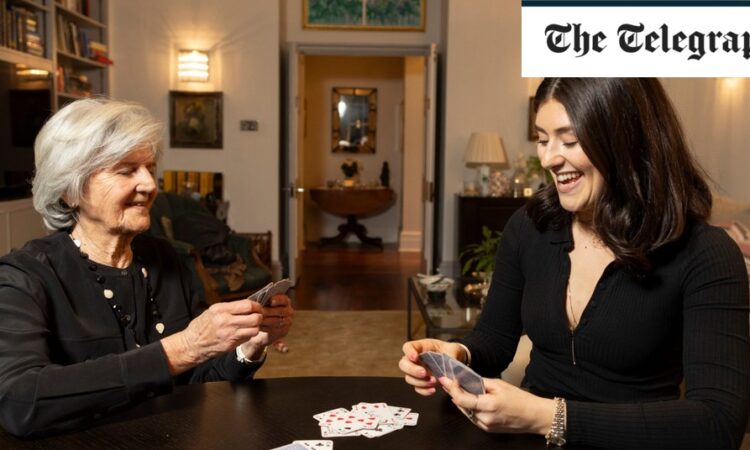
Knowing how she thrived around young people, her family encouraged her to turn her study into a bedroom to ensure her children and grandchildren could stay over. She now has her 26-year-old granddaughter, Eliza Brunero, lodging with her on Wednesdays each week.
“It’s such a bonus – sometimes I cook for her, sometimes she cooks for me, we play cards, we watch TV and we chat,” Hamilton says. “I can’t say I add anything to her life but she certainly brightens up mine.”
Brunero begs to differ. Wednesdays are a highlight for her, too, she says: the two of them have fallen into an easy rhythm; she arrives from her job at a start-up and spends the evening cooking and chatting with her grandmother – a complete change of scene from her usual evenings with her boyfriend and friends.
Sometimes she’ll decide to work from home at Hamilton’s the following day, too. “I spend 90pc of time around people of a similar age because I work for a company where everyone is under 35,” Brunero says.
“Talking to my grandmother engages my brain in a different way, whether it’s about politics, her life, my life – we end up having very deep conversations. It’s made me realise how much we take older people for granted.”
Both Brunero and Hamilton can see how mutually beneficial a multigenerational community such as Ayrton House could be. As Chappatte says, it solves two modern issues: a lonely senior population and a lack of housing for the young, many of whom are also lonely.
“Suicide rates are increasing at universities; it’s not easy to be thrust into life after education, particularly given the challenge of securing accommodation and a job,” she says.
While young people might think they want to live amongst people their own age, it’s not necessarily the best thing for them, Chappatte continues. Research by Hybr suggests that many students feel out of their comfort zone due to the lack of structure in their lives and can get carried away with partying and drinking.
In Switzerland, where she grew up, there are already multigenerational schemes like Ayrton House, while a trial in Spain has proved incredibly positive, with 80pc of inhabitants claiming to be invigorated by the experience.
